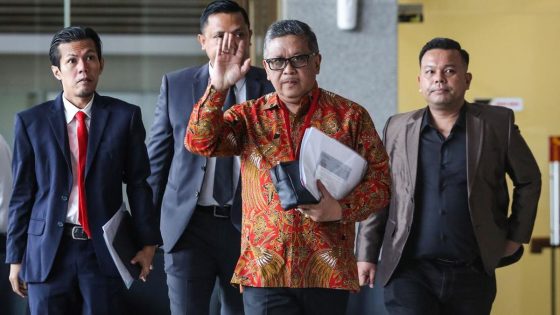On February 6, 2025, a significant political scandal emerged in Indonesia involving Hasto Kristiyanto, the Secretary-General of PDI Perjuangan (PDIP). Allegations suggest that Hasto promised Riezky Aprilia a high-ranking position in exchange for resigning from his seat in the Indonesian Parliament, paving the way for Harun Masiku. What does this mean for Indonesian politics?
- Hasto Kristiyanto promised Riezky a BUMN position.
- Saeful Bahri met Riezky in Singapore.
- Riezky refused to resign from DPR seat.
- Hasto attempted bribery with Wahyu Setiawan.
- KPK arrested Hasto and Donny Tri Istiqomah.
- Hasto filed for pre-trial against KPK.
Political Scandal in Indonesia: Hasto Kristiyanto’s Alleged Bribery Scheme
What happens when political ambition crosses ethical lines? Hasto Kristiyanto’s alleged actions have sparked outrage and concern over corruption in Indonesia’s political landscape. The case involves a promise of a lucrative position in exchange for political maneuvering, highlighting the ongoing challenges of transparency and accountability in governance.
Implications of Hasto’s Alleged Dealings on Indonesian Politics
The implications of Hasto’s alleged dealings are far-reaching. Here are some key points to consider:
- Potential erosion of public trust in political institutions.
- Increased scrutiny on political party practices and candidate selection.
- Possible legal consequences for those involved in bribery.
- Impact on future elections and political stability in Indonesia.
Understanding the Role of Political Parties in Indonesia
Political parties in Indonesia play a crucial role in shaping governance and policy. However, scandals like this one can damage their reputation. How can parties restore public confidence? They must prioritize transparency and ethical behavior to regain trust.
The Importance of Accountability in Governance
Accountability is essential for a healthy democracy. Citizens expect their leaders to act in the public’s best interest. This situation raises questions about how political leaders can be held accountable for their actions. Strengthening legal frameworks and promoting civic engagement are vital steps toward ensuring accountability.
In conclusion, the allegations against Hasto Kristiyanto serve as a reminder of the ongoing battle against corruption in politics. As Indonesia navigates these challenges, the focus must remain on fostering a transparent and accountable political environment for future generations.

































